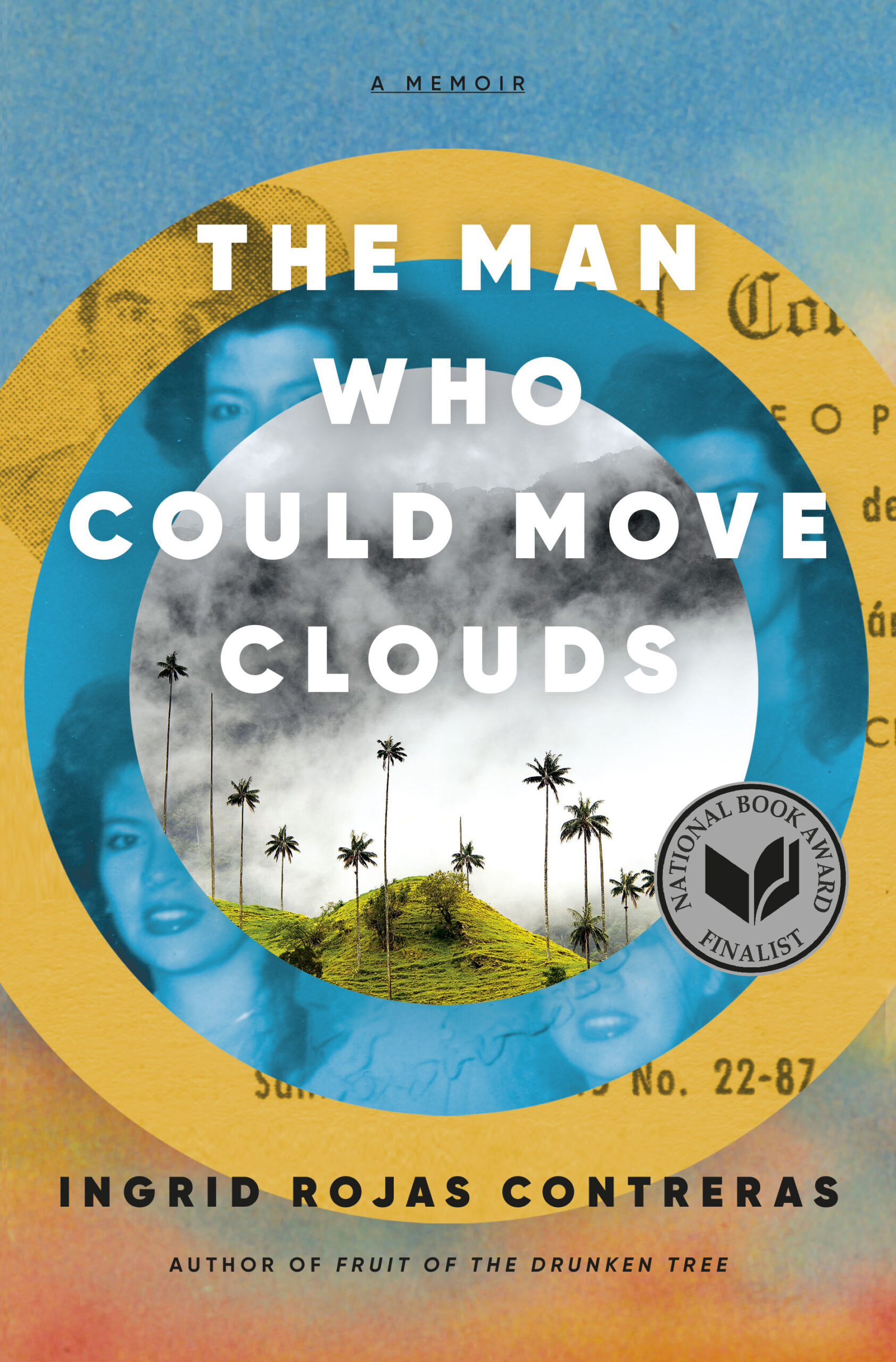Some families have enough musicians to populate an orchestra, others breed athletes, and some, I suppose, create hordes of CPAs. In Ingrid Rojas Contreras’s family, there are generations of healers, seers, and, in the purest sense of the word, storytellers.
In The Man Who Could Move Clouds (Doubleday), Rojas Contreras expertly layers familial imperatives, Colombian politics, and complex questions about identity, self-determinism, and destiny with writing that is lyrical and lush, depicting a world that may not be entirely visible but is decidedly real.
The book begins with a bicycle accident that causes Rojas Contreras a life-altering concussion, which results in a temporary amnesia initially not evident to her loved ones. Her recovery leads to an excavation of the nature of memory, the complexities of familial histories—her mother experienced a similar brain injury decades prior—and, with help from family members, a quest to disinter an ancestor.
After Rojas Contreras, her mother, and other family members are visited by the same dream (“shared dreams have the validity of being peer-reviewed,” she dryly notes), their group sets forth to grand-patriarch Nono the curandero’s resting place in Colombia. Her account of their expansive journey is moving and entertaining, as is her description of the multi-generational relationships in this family of healers and conveners.
Ultimately, it’s an enthralling memoir. Among many other remarkable gifts, her Nono healed the sick and often moved clouds “for farmers who needed rain,” and her mother could foretell the future and had “the eerie and modest talent of appearing in two places at once.” Rojas Contreras wields a similar magic with language. In her hands, The Man Who Could Move Clouds is less magical realism and more magical reality, penned in mesmerizing detail, a book that is one of the finest examples of memoir in style and content.
“The intention with which something is laid into the earth matters,” writes Rojas Contreras. So it also is with writing: intention is essential. Across generational, national and temporal divides, Rojas Contreras grounds The Man Who Could Move Clouds with details that allow the narrative to soar beyond the parameters of traditional memoirs, and the reader to feel an intimate member of this expedition, and this family.
In my own Persian culture, oral histories (and oral poetry) are as constant a companion as extra-fine long grain basmati rice, and the idea of communal memory is deeply rooted in our millenia-long human ancestry—around a fire, telling stories to remember who we are and to banish the darkness, if only for a while. “Good divination is the art of a good story,” says Rojas Contreras’s mother. “You have to speak in metaphors, in paradox, in symbolism…. You have to tell a story that will allow the client to experience the truth without your ever having to name it.” Rojas Contreras is an exemplar of the family tradition, and The Man Who Could Move Clouds is both an act of divination and exceptionally divine.



